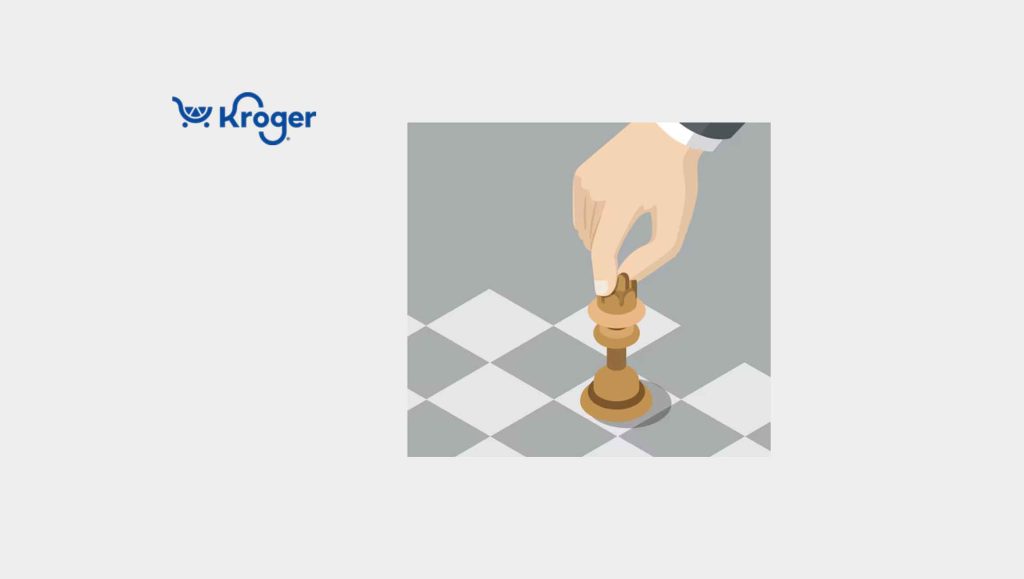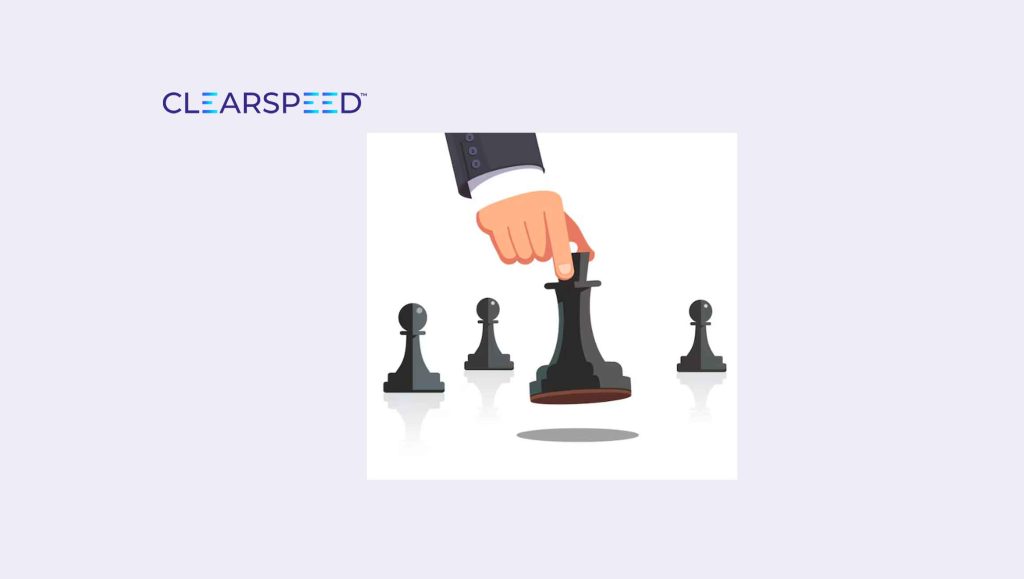Leading micro-segmentation technology blocks the spread of malware within an enterprise, limiting its impact
Akamai Technologies, Inc., the world’s most trusted solution for protecting and delivering digital experiences, announced it has entered into a definitive agreement to acquire Tel Aviv, Israel-based Guardicore. By adding Guardicore’s micro-segmentation solution into Akamai’s extensive Zero Trust security portfolio, Akamai will be uniquely suited to provide comprehensive protections to the enterprise, defending against threat actors and the spread of malware and ransomware.
Guardicore’s micro-segmentation solution is designed to limit user access to only those applications that are authorized to communicate with each other. By denying communication as the default, the threat surface and risk exposure are drastically reduced, thereby limiting the spread of malware and protecting the flow of enterprise data across the network. This protection extends beyond the data center to the cloud, including bare metal, virtual machines and containers.
Akamai currently offers a broad suite of innovative and leading Zero Trust security solutions, including Web Application Firewall (WAF), Zero Trust Network Access (ZTNA), Domain Name System (DNS) Firewall, and Secure Web Gateway (SWG), that help prevent attackers and malware on employee devices from gaining access to enterprise infrastructure and applications. But to be secure in today’s world, enterprises also need a second layer of defense to block the spread of malware after it has gained a foothold within the corporate infrastructure. Guardicore’s best-in-class micro-segmentation solution provides this much-needed capability, substantially mitigating the impact of breaches and the threat posed by ransomware. Their solution enables deep visibility into application flows, across data center and cloud applications, allowing businesses to more granularly understand and protect their infrastructure, from the core of the enterprise to the cloud. As a result, breaches can be detected early on so that corrective actions can be taken as quickly as possible.
“Given the recent surge in ransomware attacks and increasingly stringent compliance regulations, investing in technologies to reduce the spread of malware has become mission critical,” said Tom Leighton, chief executive officer and co-founder, Akamai Technologies. “By adding Guardicore’s leading micro-segmentation products to Akamai’s comprehensive portfolio of Zero Trust solutions, we believe Akamai will be able to provide the most effective way to combat ransomware on the market today.”
“Guardicore’s mission is to protect enterprises from damage caused by breaches, like ransomware, while safeguarding the critical assets at the heart of the network,” said Pavel Gurvich, co-founder and chief executive officer, Guardicore. “The customer is able to reduce risk in a holistic way across all products, managing from a single console, versus many products and machines. My team and I greatly look forward to joining Akamai to protect the user and the enterprise — no matter what the user is doing or where end users and workloads are located.”
Under terms of the agreement, Akamai has agreed to acquire all of the outstanding equity of Guardicore for approximately $600 million, after giving effect to expected purchase price adjustments. The closing of the transaction, which is subject to customary closing conditions, is expected to occur in the fourth quarter of 2021. For fiscal year 2022, the Guardicore acquisition is anticipated to provide about $30-35 million in revenue, and Akamai’s non-GAAP operating margin is anticipated to be in the range of approximately 29-30%. The company’s non-GAAP operating margin is expected to return to at least 30% for fiscal year 2023. On its next quarterly call currently scheduled for November 2, 2021, the company plans to provide third quarter 2021 financial results and full year 2021 financial guidance including any expected impact from Guardicore.
Read More: Akamai Unveils Machine Learning That Intelligently Automates Application And API Protections And…
Morgan Stanley & Co. LLC served as financial advisor to Akamai on the transaction.
Conference call scheduled today, Wednesday, September 29 at 8:30 a.m. ET
Akamai will host a conference call to discuss the acquisition of Guardicore today, September 29, 2021, at 8:30 a.m. Eastern time. The call may include forward-looking financial guidance from management. The call can be accessed through (844) 578-9671 (or (508) 637-5655 for international calls) using conference ID number 9519677. A live webcast of the call may be accessed at www.akamai.com in the Investor section. In addition, a replay of the call will be available for two weeks following the conference through the Akamai website or by calling (855) 859-2056 (or (404) 537-3406 for international calls) and using conference ID number 9519677.
Use of Non-GAAP Financial Measures
In addition to providing financial measurements based on generally accepted accounting principles in the United States of America (GAAP), Akamai provides additional financial metrics that are not prepared in accordance with GAAP (non-GAAP). Management uses non-GAAP financial measures, in addition to GAAP financial measures, to understand and compare operating results across accounting periods, for financial and operational decision making, for planning and forecasting purposes, to measure executive compensation and to evaluate Akamai’s financial performance. The non-GAAP financial measure used in this release is non-GAAP operating margin.
Management believes that this non-GAAP financial measure reflects Akamai’s ongoing business in a manner that allows for meaningful comparisons and analysis of trends in the business, as it facilitates comparing financial results across accounting periods and to those of peer companies. Management also believes that this non-GAAP financial measure enables investors to evaluate Akamai’s operating results and future prospects in the same manner as management. The non-GAAP operating margin metric excludes expenses and gains that may be unusual in nature, infrequent or not reflective of Akamai’s ongoing operating results.
The non-GAAP financial measure used does not replace the presentation of Akamai’s GAAP financial results and should only be used as a supplement to, not as a substitute for, Akamai’s financial results presented in accordance with GAAP. For historical non-GAAP measures, Akamai has provided a reconciliation of each non-GAAP financial measure used in its financial reporting and investor presentations to the most directly comparable GAAP financial measure. These can be found under the caption “Reconciliation of GAAP to Non-GAAP Financial Measures” on the Investor Relations section of Akamai’s website.
Akamai provides forward-looking statements in the form of guidance and other expressions of expectations about future performance, such as expected future non-GAAP operating margin projections. These forward-looking projections are provided on a non-GAAP basis and cannot be reconciled to the closest GAAP measure without unreasonable effort because of the unpredictability of the amounts and timing of events affecting the items we exclude from non-GAAP measures. For example, stock-based compensation is unpredictable for Akamai’s performance-based awards, which can fluctuate significantly based on current expectations of future achievement of performance-based targets. Amortization of intangible assets, acquisition-related costs and restructuring costs are all impacted by the timing and size of potential future actions, which are difficult to predict. In addition, from time to time, Akamai excludes certain items that occur infrequently, which are also inherently difficult to predict and estimate. It is also difficult to predict the tax effect of the items we exclude and to estimate certain discrete tax items, like the resolution of tax audits or changes to tax laws. As such, the costs that are being excluded from non-GAAP projections are difficult to predict and a reconciliation or a range of results could lead to disclosure that would be imprecise or potentially misleading. Material changes to any one of the exclusions could have a significant effect on our guidance and future GAAP results.
Akamai’s definition of the non-GAAP measure used in this press release is outlined below:
Non-GAAP operating margin – Non-GAAP income from operations stated as a percentage of revenue. Non-GAAP income from operations is GAAP income from operations adjusted for the following items: amortization of acquired intangible assets; stock-based compensation; amortization of capitalized stock-based compensation; amortization of capitalized interest expense; acquisition-related costs; restructuring charges; gains and losses on legal settlements; costs incurred related to endowments to the Akamai Foundation; and other non-recurring or unusual items that may arise from time to time.
The non-GAAP adjustments, and Akamai’s basis for excluding them from non-GAAP financial measures, are outlined below:
- Amortization of acquired intangible assets – Akamai has incurred amortization of intangible assets, included in its GAAP financial statements, related to various acquisitions Akamai has made. The amount of an acquisition’s purchase price allocated to intangible assets and term of its related amortization can vary significantly and is unique to each acquisition; therefore, Akamai excludes amortization of acquired intangible assets from its non-GAAP financial measures to provide investors with a consistent basis for comparing pre- and post-acquisition operating results.
- Stock-based compensation and amortization of capitalized stock-based compensation – Although stock-based compensation is an important aspect of the compensation paid to Akamai’s employees, the grant date fair value varies based on the stock price at the time of grant, varying valuation methodologies, subjective assumptions and the variety of award types. This makes the comparison of Akamai’s current financial results to previous and future periods difficult to interpret; therefore, Akamai believes it is useful to exclude stock-based compensation and amortization of capitalized stock-based compensation from its non-GAAP financial measures in order to highlight the performance of Akamai’s core business and to be consistent with the way many investors evaluate its performance and compare its operating results to peer companies.
- Acquisition-related costs – Acquisition-related costs include transaction fees, advisory fees, due diligence costs and other direct costs associated with strategic activities. In addition, subsequent adjustments to Akamai’s initial estimated amounts of contingent consideration and indemnification associated with specific acquisitions are included within acquisition[1]related costs. These amounts are impacted by the timing and size of the acquisitions. Akamai excludes acquisition-related costs from its non-GAAP financial measures to provide a useful comparison of Akamai’s operating results to prior periods and to its peer companies because such amounts vary significantly based on the magnitude of the acquisition transactions and do not reflect Akamai’s core operations.
- Restructuring charges – Akamai has incurred restructuring charges that are included in its GAAP financial statements, primarily related to workforce reductions and charges associated with exiting facility lease commitments. Akamai excludes these items from its non-GAAP financial measures when evaluating its continuing business performance as such items vary significantly based on the magnitude of the restructuring action and do not reflect expected future operating expenses. In addition, these charges do not necessarily provide meaningful insight into the fundamentals of current or past operations of its business.
- Amortization of debt discount and issuance costs and amortization of capitalized interest expense – In August 2019, Akamai issued $1,150 million of convertible senior notes due 2027 with a coupon interest rate of 0.375%. In May 2018, Akamai issued $1,150 million of convertible senior notes due 2025 with a coupon interest rate of 0.125%. The imputed interest rates of these convertible senior notes were 3.10% and 4.26%, respectively. This is a result of the debt discounts recorded for the conversion features that are required to be separately accounted for as equity under GAAP, thereby reducing the carrying value of the convertible debt instruments. The debt discounts are amortized as interest expense together with the issuance costs of the debt. The interest expense excluded from Akamai’s non-GAAP results is comprised of these non-cash components and is excluded from management’s assessment of the company’s operating performance because management believes the non-cash expense is not representative of ongoing operating performance.
- Legal settlements – Akamai has incurred losses related to the settlement of legal matters. Akamai believes excluding these amounts from its non-GAAP financial measures is useful to investors as the types of events giving rise to them are not representative of Akamai’s core business operations.
- Endowment of Akamai Foundation – Akamai has incurred expenses to endow the Akamai Foundation, a private corporate foundation dedicated to encouraging the next generation of technology innovators by supporting math and science education. Akamai’s first endowment was in 2018 to enable a permanent endowment for the Akamai Foundation to allow it to expand its reach. In the fourth quarter of 2020 Akamai supplemented the endowment to enable specific initiatives to increase diversity in the technology industry. Akamai believes excluding these amounts from non-GAAP financial measures is useful to investors as these infrequent and nearly one-time expenses are not representative of its core business operations.
Read More: 87% Of Small Businesses Borrowing At Pre-Pandemic Rates
Akamai Statement Under the Private Securities Litigation Reform Act
This release and/or our investor conference call scheduled for later today contain information about future expectations, plans and prospects of Akamai’s management that constitute forward-looking statements for purposes of the safe harbor provisions under The Private Securities Litigation Reform Act of 1995, including statements about expected future financial performance and the benefits of the planned acquisition of Guardicore. Actual results may differ materially from those indicated by these forward-looking statements as a result of various important factors including, but not limited to, inability to continue to generate cash at the same level as prior years; failure of Guardicore’s technology to interoperate as expected with existing Akama technology; inability to increase our revenue at the same rate as in the past and keep our expenses from increasing at a greater rate than our revenues; and other factors that are discussed in the Company’s Annual Report on Form 10-K, quarterly reports on Form 10-Q, and other documents periodically filed with the SEC.
In addition, the statements in this press release and on such call represent Akamai’s expectations and beliefs as of the date of this press release. Akamai anticipates that subsequent events and developments may cause these expectations and beliefs to change. However, while Akamai may elect to update these forward-looking statements at some point in the future, it specifically disclaims any obligation to do so. These forward-looking statements should not be relied upon as representing Akamai’s expectations or beliefs as of any date subsequent to the date of this press release.





















